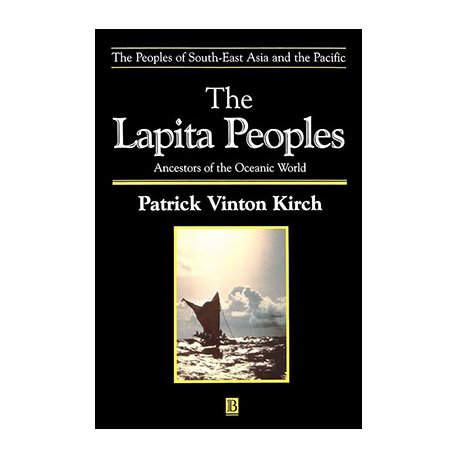
The Lapita peoples (occasion)
Ancestors of the Oceanic World
LAPEO
Blackwell publisher, 1997.
Ouvrage d'occasion (en anglais).
Bon état général.
Ouvrage d'occasion (en anglais).
Bon état général.
Détail produit
| Support | Livre d'occasion |
| Auteur | Patrick Vinton Kirch |
| Éditeur | Blackwell publisher |
| Genre | Sociologie, anthropologie, histoire |
| Date | 1997 |
| Format | Format 16 x 23 cm, broché, 376 pages |
En savoir plus
This is the first account of the Lapita peoples, the common ancestor of the Polynesians, Micronesians, and Austronesian–speaking Melanesians who over the last 4000 years colonized the islands of the Pacific, including New Zealand and territories as far afield as Fiji and Hawaii. Its purpose is to provide answers to some of the most puzzling archaeological and anthropological questions: who were the Lapita peoples? what was their history? how were they able to travel such great distances? and why did they do so? Recent discoveries (several by the author of this book) have begun at last to yield a coherent picture of these elusive peoples.
Professor Kirch takes the reader back many thousands of years to the earliest evidence of the Lapita peoples. He describes the research itself and conveys the excitement of the first discoveries of Lapita settlements, tools and pottery. He then traces the remarkable cultural development and spread of the Lapita peoples across the unoccupied islands of Eastern Melanesia, Micronesia and Western Polynesia. He shows how they became the progenitors of the Polynesian and Austronesian–speaking Melanesian peoples.
The author describes Lapita sites, communities and landscapes, the development of their decorated ceramics, and their shell–tool industry. He reveals the means by which they accomplished such prodigious voyages and explains why they undertook them. He illustrates his account with specially drawn maps and with a wide range of photographs, many published for the first time.
Drawing on the latest research in archaeology, anthropology, biology and linguistics, and written in clear, non–specialized language, this is an outstanding book of great importance to the history of South–East Asia and the Pacific.
Professor Kirch takes the reader back many thousands of years to the earliest evidence of the Lapita peoples. He describes the research itself and conveys the excitement of the first discoveries of Lapita settlements, tools and pottery. He then traces the remarkable cultural development and spread of the Lapita peoples across the unoccupied islands of Eastern Melanesia, Micronesia and Western Polynesia. He shows how they became the progenitors of the Polynesian and Austronesian–speaking Melanesian peoples.
The author describes Lapita sites, communities and landscapes, the development of their decorated ceramics, and their shell–tool industry. He reveals the means by which they accomplished such prodigious voyages and explains why they undertook them. He illustrates his account with specially drawn maps and with a wide range of photographs, many published for the first time.
Drawing on the latest research in archaeology, anthropology, biology and linguistics, and written in clear, non–specialized language, this is an outstanding book of great importance to the history of South–East Asia and the Pacific.
 (
(

 Lettre d'informations
Lettre d'informations